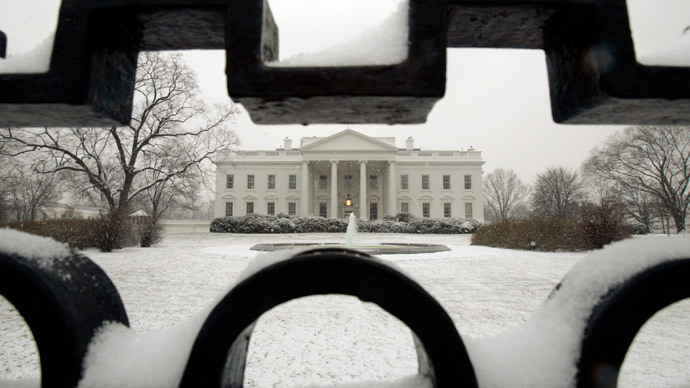For the last five years, the White House has withheld over 9,000 top-secret documents from a Senate investigation of the CIA’s former detention and torture program. The report comes one day after the CIA was accused of interfering in the probe.
Though the White House has publicly supported the investigation into Bush-era torture, the Obama administration has routinely rejected requests by the Select Senate Committee on Intelligence to see the records, McClatchy news service reported Wednesday.
It is not clear how substantial the documents are for the investigation, yet the White House has shielded them without wielding the claim of executive privilege that has been used often by the Obama and George W. Bush administrations to cover CIA and other government secrets following the attacks of September 11, 2001.
The White House told McClatchy a “small percentage” of the 6.2 million pages of documents given to the Committee were “set aside because they raise executive branch confidentiality interests.” The White House added that it had worked with the Committee “to ensure access to the information necessary to review the CIA’s former program.”
Neither the CIA nor the Committee would offer comment to McClatchy.
On Tuesday, Committee chairwoman Sen. Dianne Feinstein (D) alleged that the CIA secretly removed classified documents from a computer system used by Congress in the torture probe. Feinstein claimed the CIA improperly searched a stand-alone computer network at the agency’s Langley, Virginia headquarters that was put in place so that Intelligence Committee staffers could view sensitive documents.
The CIA denied the allegations, and the White House has stood behind CIA leadership on the matter. Reuters reported Wednesday the White House had previously tried to alleviate the longstanding tension between the CIA and the Committee after both entities alleged the other spied on it. Yet the failure to assuage the feud led Sen. Feinstein to write several letters appealing to Obama’s chief legal adviser, Kathryn Ruemmler, seeking a resolution. Those attempts also fell short.
Feinstein made no mention of the 9,400 White House documents during her Tuesday speech on the Senate floor. The held materials came to the Committee’s attention in 2009, though it is not clear whether the White House had given the Democrat-led Committee access to them and then rescinded the collection. Why the documents have been kept from the Committee is yet unknown.
“The most nefarious explanation is that they are not privileged and the White House simply doesn’t want to hand them over,” said Elizabeth Goitein, the co-director of the Brennan Center for Justice’s Liberty and National Security Program at the New York University Law School.
“Executive privilege is generally asserted after negotiations and brinksmanship behind the scenes. People put on paper what they want to be formalized, and these negotiations by their very nature are very informal.”
The documents have been referenced in public. Most prominently was in August, when Committee member Mark Udall [D] pressed the administration’s Pentagon general counsel nominee, Stephen W. Preston, for an answer on how he, as former CIA general counsel, played a role in the agency’s protection of the documents.
Preston responded by saying that “a small percentage of the total number of documents was set aside for further review. The agency [CIA] has deferred to the White House and has not been substantially involved in subsequent discussions about the disposition of those documents.”
In her speech Tuesday, Feinsten also intimated that the Committee found sometime in 2010 that it had mysteriously lost access to materials it had previously had clearance to read.
“This was done without the knowledge or approval of committee members or staff and in violation of our written agreements,” she said, going on to say the “matter was resolved” after CIA evasion and a subsequent appeal to the White House.
The documents in questions are separate from materials compiled by an internal CIA review of around 6.2 million pages of emails, operational cables, and other secret documents made available to the Committee in a secret electronic reading room at the CIA’s Langley headquarters.
The Committee approved a final draft of the 6,300-page study in December 2012, yet the report has been kept from the public.
As for Senate Republicans, who long ago opted out of involvement in the CIA torture probe, the party’s top member on the Committee has cast doubt on Feinstein’s assertions.
“Although people speak as though we know all the pertinent facts surrounding this matter, the truth is, we do not,” said Sen. Saxby Chambliss.
“No forensics have been run on the CIA computers…at the CIA facility to know what actually happened,” he said Tuesday.

